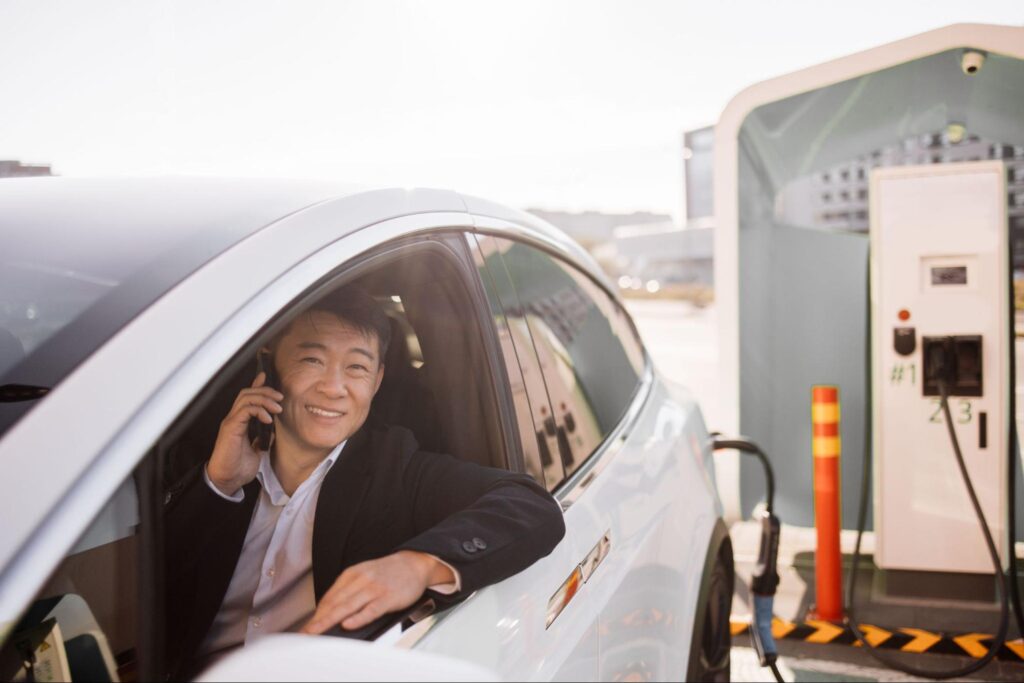Electric vehicles have risen in popularity for their eco-friendly appeal, modern features, and long-term fuel savings. Yet, insuring an EV can feel daunting, especially when you discover that premiums often differ from those of conventional cars. In this guide, we’ll explore why EV insurance tends to cost more, the key factors influencing these premiums, essential coverage types, and strategies for saving on your policy. We’ll also show how an independent, community-focused agency such as Torian Insurance can provide personalized insurance solutions to meet your needs as an electric vehicle owner.
By the time you finish reading, you’ll have a clearer picture of how EV insurance works, the coverage you should consider, and how partnering with the right insurance agency can help you navigate the process with confidence.
Why Electric Vehicle Insurance Costs More
Electric cars boast advanced technology, lower emissions, and innovative safety features. However, certain factors can drive up an EV’s insurance premiums compared to traditional vehicles. Understanding these reasons clarifies why you might pay more to insure your energy-efficient ride.
Elevated Vehicle Value and Technology
Modern Electric Vehicles (EVs) represent a significant leap forward in automotive technology, but this innovation comes at a cost reflected in both their purchase price and potential insurance premiums. It’s not just about being electric; it’s about the sophisticated systems packed within.
- The Battery System: At the core of every EV lies its battery pack – often the single most expensive component, potentially representing a substantial fraction of the vehicle’s total value. These aren’t simple batteries; they are complex systems involving advanced lithium-ion (or other) chemistries, intricate thermal management systems to ensure optimal performance and longevity, and high-voltage architecture. Damage to the battery pack, even in a seemingly minor collision, can necessitate costly diagnostics, specialized repairs, or even a full replacement, significantly increasing potential claim payouts for insurers.
- Integrated Electronics and Software Dominance: Beyond the battery, EVs are heavily reliant on integrated electronics and sophisticated software. This includes:
- Advanced Driver-Assistance Systems (ADAS): EVs frequently feature comprehensive ADAS suites with numerous cameras, radar, lidar, and ultrasonic sensors. These systems enhance safety but are expensive to replace if damaged. Critically, even minor bodywork (like replacing a bumper or windshield) often requires precise, time-consuming, and costly recalibration of these sensors to ensure they function correctly.
- Complex Control Units: Powertrain management, infotainment systems (often featuring large, high-resolution screens), connectivity features, and battery management are all controlled by powerful computer modules. Repairing or replacing these units, and ensuring software compatibility, adds another layer of complexity and cost.
Specialized Repairs and Technician Expertise
Repairing electric cars sometimes requires specialized equipment and training. For instance, high-capacity batteries must be serviced or replaced by technicians who are trained to handle high-voltage systems. Because such expertise can be limited, labor costs tend to be higher. Insurance companies factor these expenses into the premium, as they may need to pay more when a claim occurs.
Longer Repair Times and OEM Parts
Many EV components—particularly batteries and other cutting-edge parts—are available only through the original manufacturer. This dependence on OEM components can result in higher repair expenses. Lengthy repair times are another factor: if a part is out of stock, you might wait longer for repairs to be completed, which in turn increases costs for insurers.
Battery-Related Risks
Although EV batteries are generally safe, there is a risk of damage or rare issues like thermal runaway. When such incidents occur, they can be expensive to resolve. With the potential for high-cost battery repair or replacement, insurance companies set higher rates to cover these risks.
This combination of high-cost core components (especially the battery), intricate and sensitive electronic systems requiring calibration, specialized repair knowledge and tools, longer repair times, and often a higher initial purchase price (MSRP) all contribute to a higher “insured value.” When an insurer calculates the potential cost to repair or replace an EV after an accident, these factors point towards a potentially larger payout compared to a similarly sized gasoline vehicle. Consequently, this higher risk exposure for the insurer is typically reflected in higher insurance premiums for the EV owner.
Key Factors That Influence EV Insurance Premiums
Several aspects beyond technology and repair complexity affect your EV insurance cost. By examining these factors, you can better anticipate potential premiums and take steps to reduce them.
Vehicle Model and Value
Not all EVs are priced the same. Higher-end electric models with more luxury features—or simply a higher market value—typically incur higher insurance premiums. For example, a top-tier vehicle such as the Tesla Model X carries a larger price tag than a standard EV, translating into higher coverage costs. Conversely, more affordable EVs may lead to lower premiums due to their modest market value.
Driver History and Location
Your driving history significantly determines your insurance rates. Clean driving records often receive the lowest premiums, while an accident-prone record or repeated moving violations can lead to higher costs. Your location is also a factor—congested urban areas or regions with high theft or severe weather risks typically drive up insurance premiums.
Mileage and Usage Habits
How, when, and why you use your EV affects your insurance policy. Low-mileage drivers who primarily use their cars for local commutes often pay less, whereas those who drive extensively for work, such as for rideshare services, may face higher premiums due to increased risk exposure.
Green Vehicle Discounts and Safety Features
Although EV insurance is often more expensive, some companies offer incentives for those embracing environmentally friendly technology. You might benefit from green vehicle discounts or reduced rates if your car includes advanced safety or driver-assistance features. Additionally, telematics programs (usage-based insurance) may lower your premium if your driving behavior is deemed safe and responsible.
Deductibles and Bundling Opportunities
Opting for a higher deductible can lower your monthly premium, though you will need to cover a larger amount in the event of a claim. Moreover, many insurers provide discounts if you bundle multiple policies—such as home, auto, and life—under one provider.
Essential Insurance Coverage for Electric Vehicles
While most auto insurance requirements apply to EVs similarly to traditional cars, certain coverage areas assume extra importance with electric vehicles. Comprehensive protection ensures you are prepared for the particular risks associated with EV ownership.
Liability Coverage: Mandatory Protection
Liability coverage is legally required in nearly every state, offering protection if you cause injury or property damage to others. Although buying only the minimum state-required coverage may save on monthly premiums, it could leave you financially exposed in a serious incident. Given the higher overall value of many EVs, carrying enhanced liability limits provides more robust personal protection.
Collision and Comprehensive Coverage
To protect your EV’s full value, you should consider collision and comprehensive coverage. Collision insurance covers repairs if your vehicle is damaged in a crash, whereas comprehensive covers non-collision incidents like theft, extreme weather, or electrical surges. With the advanced and costly components inside many EVs, these coverages help prevent substantial out-of-pocket expenses following an incident. Given that repairs, particularly those involving specialized parts like batteries, can sometimes take longer for EVs, consider reviewing and potentially increasing your rental reimbursement coverage limits to avoid being without transportation.
Coverage for Uninsured and Underinsured Motorists
An accident with an inadequately insured driver can leave you financially vulnerable. Underinsured motorist coverage helps pay costs when another driver’s liability limits fall short. This coverage is particularly important for EV owners given that many EVs carry a higher replacement value than conventional vehicles.
Gap Insurance
EVs, like many vehicles, depreciate over time. If your EV is totaled, you might owe more on a loan or lease than the car’s current cash value. Gap insurance bridges this difference—ensuring that you are not burdened with a financial shortfall following a total loss.
Protecting Your Home Charging Station
Home charging stations are an integral part of EV ownership. While damage to these charging units due to lightning strikes or electrical surges is generally covered under standard homeowners insurance, specific protection for charging equipment might require an endorsement. Without such an endorsement, you could potentially face high replacement costs if your charger is damaged. It’s important to review your policy and, if necessary, add coverage that specifically includes your home charging equipment to avoid unexpected out-of-pocket expenses.
Strategies to Save on EV Insurance
Although EV insurance premiums can be higher than those for conventional cars, there are multiple strategies to help reduce your costs without sacrificing adequate protection:
- Shop Around: Obtaining multiple quotes ensures you find a rate that’s competitive.
- Maintain a Clean Record: Safe driving habits typically result in lower premiums.
- Bundle Policies: Combining your home, auto, and other insurance policies can qualify you for discounts.
- Implement Safety Features: Upgrading your vehicle with advanced driver-assistance technology may reduce your premiums.
- EV Green Discounts: Certain insurance companies offer discounts for driving eco-friendly vehicles.
- Consider Usage-Based Insurance: If you’re a responsible driver, usage-based insurance can be a viable option to lower your premiums.
- Explore Pay-in-Full Discounts: Some insurers offer discounts if you pay your premium in full rather than making monthly payments.
- Maintain Good Credit: A good credit score can help you obtain more favorable rates.
- Review Your Policy Annually: Regularly assessing your coverage ensures that it remains aligned with your vehicle usage and financial situation.
By staying proactive and periodically reviewing your policy, you can fine-tune your coverage while avoiding unnecessary expenses.
Benefits of Independent and Personalized Insurance Solutions for EV Owners
Finding the right auto insurance often requires more than a basic quote—especially when covering electric vehicles. Independent insurance agents are well-positioned to compare offerings from multiple carriers to find the best fit for your needs. This level of flexibility is especially important for EV owners who benefit from customized insurance options rather than one-size-fits-all policies.
Partnering with a local, community-focused agency means you gain access to professionals that understand your region’s specific driving conditions and insurance requirements. Torian Insurance exemplifies this local expertise. With a commitment to fostering personal relationships and prioritizing clear client communication, independent insurance agents can craft policies that suit your vehicle’s advanced technology and your particular budget.
Torian Insurance: Your Trusted Partner for EV Insurance
Located in Evansville, Indiana, and serving Southern Indiana, Illinois, and Kentucky, Torian Insurance remains locally owned and operated—a rare quality in today’s market dominated by larger agencies. Since 1923, Torian Insurance has championed personalized service, helping families and businesses address their unique coverage needs. This dedication is especially valuable for those seeking tailored guidance on insuring electric vehicles.
Being an independent agency means Torian Insurance can access multiple carriers to find the best fit for your EV. Whether you drive an affordable electric car for daily commutes or a luxury model, Torian’s custom insurance solutions are designed to align with your technology, budget, and personal preferences. Beyond providing comprehensive coverage, the agency is committed to delivering a proactive and smooth customer experience.
Driving Forward Confidently: Key Takeaways for EV Insurance
Insuring electric vehicles comes with additional considerations—from advanced technologies and specialized repairs to higher initial costs and battery-specific risks. Understanding the reasons behind potentially higher premiums and the factors that determine these costs can empower you to make informed decisions that protect your investment.
Essential coverage options like collision, comprehensive, gap insurance, and even specific endorsements for home charging equipment ensure that you are well-prepared for any eventuality.
Whether you’re securing comprehensive car insurance for a new electric ride or seeking ways to save on your policy, partnering with an independent agency that offers personalized insurance solutions is invaluable. Ready to explore EV insurance options with a team that understands your local needs and has access to multiple carriers? Reach out and contact Torian Insurance today for custom insurance solutions tailored to your lifestyle.



